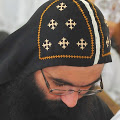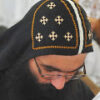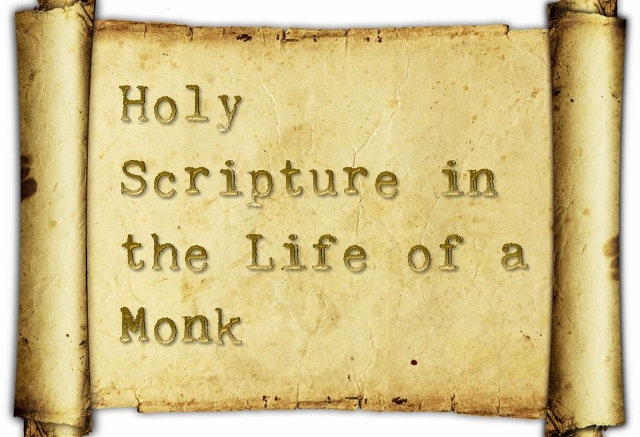During my last retreat to the monasteries in Egypt last January and in my numerous spiritual consultations with many of the elders, the topic of the Bible and how to read it frequently came up. In fact the Bible is so central to their lives that one of the solitary elders said to me “the …
During my last retreat to the monasteries in Egypt last January and in my numerous spiritual consultations with many of the elders, the topic of the Bible and how to read it frequently came up. In fact the Bible is so central to their lives that one of the solitary elders said to me “the only reason why I and many of my brothers became monks, was to have more time to read and get deeper in the Bible, since life in the world does not provide enough time to read and study the Bible as it should be.” In this article I have summarised some of the techniques that some of these elders advised to help us delve deeper into the bible. The ideas in the article are not mine but I have simply written the ideas of the elders into this article.
The basic and very first thing someone should do when reading the bible is to read the bible several times to get familiar with it’s content. One of the elders actually advised to memorise the names of books of the bible in its order. This step was not where any of the elders started his conversation but they all agreed it was a necessary beginning and a prerequisite for any serious bible study.
One of the elders advised that the bible should be read in its original language as it is very hard to begin to understand the bible when you deviate from this origin. This monk actually forbade the young monks who are learning Greek or Hebrew to read the bible in any other language.
He gave an example to illustrate the difference. In the Gospel of St John 1:14, he says about Christ “And the Word became flesh and dwelt among us.” In this verse the English language like many other languages translates the words as dwelt. However in Greek it is literally means ‘tabernacled’ as it appeared in the Old Testament, which makes an allusion to Gods dwelling among his people in the tent of the Old Testament.. This has significant meaning when interpreting and understanding the scriptures and would not be discerned unless we have a good background in the Greek language.
To my consolation since I do not know any Greek or Hebrew another elder suggested another method. This method was to read the bible verses from different translations of the bible, for example the Septuagint and the Hebrew. This method is made easier in the English language with the interlinear bibles and the many bible programs that offers this feature. He further suggested making use of some of the references that some bibles have that refers you to different parts of the bible where this topic or word occurs.
From the spiritual perspective the same elder said “To us this method you would have to repeat each verse you read several times which would help you memorise some verses and at the same time the meditation in these verses through reciting them leaves an indelible impression upon one’s memory, emotions and spirit as the psalmist says “As I mused (meditated), the fire burned within me” (Ps 39:3).
Another elder suggested a method that did not require any knowledge of ancient languages or analysing skills. He basically suggested reading the bible – “reading the bible is God talking to us”. He then asked “would it be nice if someone talks to you without replying. So when you read the bible you should stop after every few verses and ask God a question or just talk to Him”. This if done regularly simply takes the monk from this physical world to the constant feeling of the presence of God which some call ‘ecstasy’.
From the answers of these great elders I realised more and more that the bible is a box of treasures that have not yet been opened. It is taking me too long to admire the gems that decorate the box from outside and I am yet to open the box to see the priceless pearls inside. Thankfully though their techniques were not limited to any intellectual capabilities, all it requires is a devotion and willingness to open and spend much more time reading the Bible.
Join Us: Sign Up Today!












